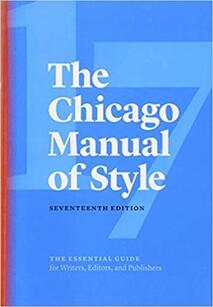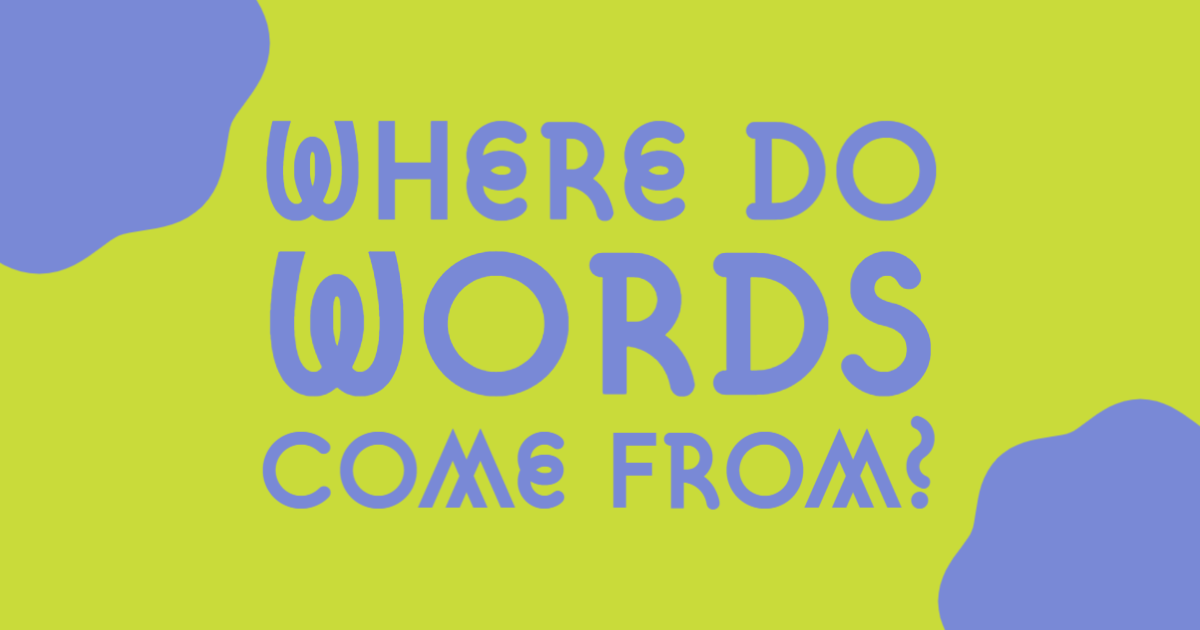|
“That word is made up!”
“All words are made up!” It’s true—all words are made up, and most of them can be tracked back to their origin. This is a particularly interesting practice in English, which has words originating from German, Latin, French, Norse, and beyond. But how can you find out where words originated? And what can you do with that information? What is etymology?
According to Webster’s Dictionary, etymology is “the history of a linguistic form (such as a word) shown by tracing its development since its earliest recorded occurrence in the language where it is found, by tracing its transmission from one language to another, by analyzing it into its component parts, by identifying its cognates in other languages, or by tracing it and its cognates to a common ancestral form in an ancestral language.”
Basically, etymology looks at where a word (or its ancestor) started and how it got to how we use it today. Understanding the etymology of words can reveal surprising connections between words that you thought were unrelated. For example, a bar where you buy drinks and the legal bar exam are actually quite connected, etymologically speaking. “Etymology” is the study of the history of words. “An etymology” also describes the history of one word in particular. For example, while studying etymology, you might run across a surprising etymology. Hope that makes sense! What’s the value in etymology?
I don’t know, trivia? Knowledge? A deeper understanding of your language? While there might not be a ton of practical use for etymology to the average person, it can be fun and even edifying to investigate the history of the words you use. Even editors and writers may not be able to find real-world application for understanding words’ etymologies, and yet etymologies can often reveal why words are spelled certain ways, why they sound reminiscent of other words, and more.
What’s the value in etymology?
I don’t know, trivia? Knowledge? A deeper understanding of your language? While there might not be a ton of practical use for etymology to the average person, it can be fun and even edifying to investigate the history of the words you use. Even editors and writers may not be able to find real-world application for understanding words’ etymologies, and yet etymologies can often reveal why words are spelled certain ways, why they sound reminiscent of other words, and more.
How can I find a word’s etymology?
While etymology dictionaries exist in print, your best bet will be to explore etymology online. Why? Words and their meanings change often, and print dictionaries and etymology dictionaries expire rapidly. So, it’s a good idea to seek your etymologies online.
Here’s Wildling’s preferred etymology resource:
If you’re not seeking the current etymology of one specific word and just want to understand the concept of etymologies more, read Etymologicon by Mark Forsyth.
written by Christina Kann
0 Comments
Based on "Linguistic Facts of Life" from Rosina Lippi-Green's English with an Accent
All spoken language changes over time.
Language is constantly changing in so many ways. Slang comes and goes; industry jargon has to be expanded to accommodate new industry. Society is always shifting, and language must change with it. Can you imagine trying to have a conversation about your computer issues in Latin? You'd be hard pressed to convey the problem clearly and directly. Don't resist this change; instead, celebrate and embrace it!
All spoken languages are equal in linguistic terms.
From your perspective, you speak "normally" or maybe even "correctly." But from someone else's perspective in another location or culture, they are speaking "normally." Far in the northern United States, people speak differently from how they speak down south. Beyond that, certain age, gender, interest, ethnic (etc.) groups speak differently. Some individuals even speak differently in different situations (codeswitching). All of these different methods of speaking--these different dialects--are equally valid in linguistic terms. They all have grammatical systems (even if those systems don't match what you were taught in school), and they are all shared among a community. It's wrong to judge someone based on how they speak because it's wrong to consider one dialect as subordinate to another.
Grammatical and communicative effectiveness are distinct and separate issues.
Grammatical and communicative effectiveness are distinct and separate issues.
In school, you (hopefully) learn some grammar to hone your writing skills. What you may not have learned is that the grammar of how you speak is completely different, and oftentimes spoken grammar is more creative with greater opportunity for variation. A great example of this is a classic from some African-American Vernacular English varieties: "Let me aks you a question." You may have learned the correct spelling "ask" for this word. It's important in writing to have this coded system of spelling to avoid large-scale miscommunications in industry, etc. But if someone were to say this sentence to you, you'd understand what they meant. That's all you need for "communicative effectiveness"-- to be understood. TL;DR: It's not cool to be pedantic about how people speak if you understand them. Written language and spoken language are historically, structurally, and functionally fundamentally different creatures.
Language is a biological imperative; all humans seek it, and if they're not provided it, they make it up. Writing is a learned skill. Why does this matter? While the brain is hardwired for language (like it's hardwired for eating), it is not hardwired for writing (like how it's not hardwired for algebra). Some people will be naturally skilled at writing and pick it up easily, but some other people might struggle with it their entire lives. Some people may even have a learning, physical, or other disability that prevents them from writing in some way or another. Try not to put too much pressure on yourself or anyone else about your writing skills. Furthermore, don't apply the same rules you've learned for writing to the spoken word. They're not the same at all! If you listen closely, there are a ton of tiny differences and some pretty major differences between the two.
Variation is intrinsic to all spoken language at every level.
Variation in language is the norm, not the exception. When a language stops changing, it dies. Remember Latin. Remember its fate, now relegated to high school classrooms as reluctant children prepare for their SATs. Celebrate language's change around you, and be part of its journey!
by Christina Kann 
Our entire editorial team had the exact same experience with style guides before entering the publishing industry: we used style guides to format citations for papers in college, and nothing more. If you’re like us, then perhaps you, too, had no idea that a style guide was intended for anything else.
In fact, style guides are massive, complex, and crucially important -- and we barely ever use them for citations anymore (lookin’ at you, nonfiction!). A style guide is a rulebook for writing that outlines grammar prescriptions and recommendations that can also give advice for troubleshooting unusual issues. Listen to our accompanying podcast episode!
Style guides are used to ensure that every publication coming from the same place uses the same grammar system. For example, essentially all fiction books that are published in American English these days are edited using the Chicago Manual of Style (CMS), which the University of Chicago Press has been publishing since 1906. (Students sometimes use Chicago/Turabian, which is a streamlined version of CMS for academics.)
You may recognize some of the hallmarks of CMS, like a preference for the Oxford (or serial) comma. As editors, we rely on CMS to tell us where commas go (spoiler alert: it’s complicated!) and how to format ellipses. . . . It also tells us what order parts of the book go in. For example, CMS prefers that the dedication page of a book goes in the front, while the acknowledgments page should go in the back. CMS also defers all spelling questions to Merriam-Webster’s Dictionary in particular! Some other style guides may be familiar to you, like the Modern Language Association (MLA) style guide or the AP (Associated Press) style guide. Many companies and other organizations also develop their own style guides. These corporate style guides can come in handy when a company like Medium, for example, utilizes hundreds of writers from all around the world but still wants all those articles to be grammatically consistent. That’s the key word here: consistent. The entire purpose of style guides is to ensure that a book’s grammar is consistent throughout; that an author’s books are consistent from one to the next; that a publisher’s book list is edited to a consistent standard; that books across the country are grammatically consistent so readers have an easier time hopping from one to the next. Having a codified system that any editor can turn to, via print style guide or online, is how we achieve this glorious consistency. All this is to say: Your editor is not making up their grammatical recommendations. If you have a really nice editor (say, any editor at Wildling Press), they may take the time to explain some of their corrections to you using CMS as their guide. However, just like any other industry, these rules are complex and layered, stacking on top of each other to create a full spectrum of meaning and clarity. It’s not always easy for an editor to explain why they’ve made a certain correction. But more often than not, there is a grammatical rule (or several!) from CMS behind their correction. Studying the CMS is a great step to take to become a better writer. We once had someone tell us, “I’m not familiar with CMS, but I could read it in a day or two.” Well, they certainly missed the point! Reading the style guide from cover to cover might not do you much good -- unless you have a really excellent memory for that sort of thing. Instead, try evaluating the choices you are making when writing, and then asking yourself, “Why am I making this choice? Is this the right choice?” Before you slap that comma there, try looking it up! Does a comma actually belong there? (As we mentioned, commas are really objectively unreasonably complicated.) Here’s the good news: if working with a style guide is hard for you, you can rely on your editor to show you the way. Just be sure to remember that their corrections come from a good place: the Chicago Manual of Style! by Christina Kann |
How Do I Book?We'll try to find the answer to that question in our blog. Archives
August 2023
Categories
All
|




 RSS Feed
RSS Feed